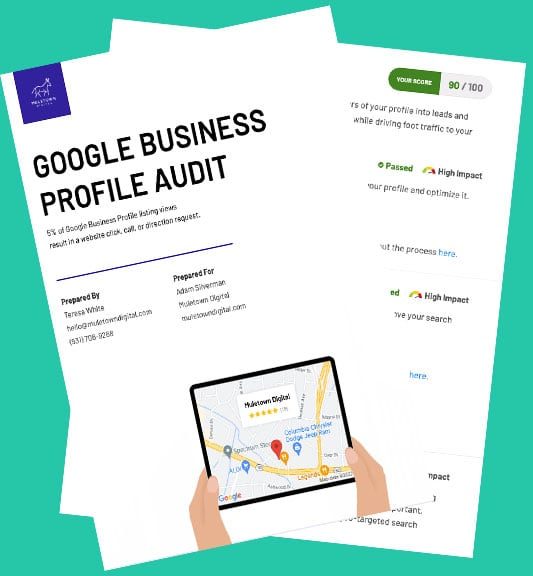Nowadays, more businesses than ever are learning what SEO (Search Engine Optimization) is. Search engines have quickly become a staple in modern marketing, possibly the most trusted source to find products and services for many people across the world. And yet, so much about SEO is still a mystery, and countless misconceptions are unbelievably popular.
If you’re looking to tackle the world of SEO, then research is essential to your success. With so many myths readily available, it is easier than ever to accidentally tank your own website. Debunking these myths will give you a better understanding of what excellent SEO looks like. And, who knows? It might just help you climb the rankings across various SERPs (Search Engine Results Pages).
In this article, we are breaking down the five most popular SEO myths. These misconceptions are extremely common in the world of online marketing, and we’d hate to see small businesses and websites lose their rankings by falling into these traps. Continue reading to learn about some of the most crucial aspects of SEO practice and how you can best set yourself up for long-term success.
For personalized advice, contact our team at Muletown Digital today.

Myth #1 – SEO is a One-Time Task
This is, perhaps, the most common myth we see floating around about SEO practice. Many people believe that SEO is a one-time task – that, while it may take some time to adjust their content to appeal to search engines, they will be able to knock the work out and reap the benefits for years to come. Once the keywords are in there, the optimization will operate itself into the future. It’s not like Google is going to suddenly change its optimization algorithms, right?
Unfortunately, this is a major misconception.
In reality, successful SEO requires a lot more commitment than a one-time effort. An exceptional SEO campaign needs to focus on quality, as well as staying ‘fresh’. With a constant flow of captivating and engaging content being put out, search engines are more likely to continue platforming your website or page. If you want your digital presence to stay alive and strong, then you don’t want to appear outdated and inactive.
Regular updates of your content, keywords, and strategy aren’t just extra pieces to take your SEO campaign from ‘good’ to ‘great’. This is an essential part of optimization, and there isn’t any way to avoid it. You need to keep your content fresh and routinely adjust it to keep up with changing competitors, keywords, and search engine algorithms. The results will be well worth the effort – but we should warn you now that SEO is an ongoing commitment!
Myth #2 – Keyword Stuffing Improves Rankings
Keywords are a great indicator for search engines that a page is relevant to a specific search. For many people seeking to create a strong online presence, inserting keywords into their content is likely the very first technique they’re going to use, especially since it is a popular belief that inserting as many relevant keywords and keyword variations is going to make your ranking skyrocket.
The funny this about this particular myth is that it is grounded in some very real evidence. There was a time, in the early days of search engine algorithms and before SEO really existed, when keyword stuffing yielded positive results. If a page included the exact search keyword, then it would have a higher chance of ranking. When people discovered this, they began to appeal to more searches by cramming all variations of keywords onto a page, a times not even in ways that would make content unreasonable. This strategy is what became known as ‘keyword stuffing’.
So, yes, there was a time when keyword stuffing would improve rankings. However, this hasn’t been the case for many years now.
Developments in search engine optimization over the years began to target low-quality sites, picking up on pages where content was weak and provided very little value to the reader. Keyword-stuffed pages were quickly flagged and demoted, as they provided far less helpful content than competitive pages which were written to benefit people rather than search engines.
Inserting unnatural keywords, or stuffing your content with phrases to try and appeal to all possible relevant searches, is going to demote your page. Search engines will now promote pages that are written for people, and a page with high-quality content is going to rank well even if it doesn’t include the ‘exact’ phrase searched. While you should still keep keywords in mind, their inclusion should never come above readability and quality of content.
Myth #3 – Backlinks Don’t Matter Anymore
As search engines have adapted and changed over the years, it can be hard to stay updated on what strategies are still relevant and what are useless. Just as keyword stuffing has become an outdated practice that demotes your page in the rankings, there are other practices that people now believe are no longer relevant. A common belief is that backlinking has become obsolete in modern SEO.
Firstly, let’s establish what backlinking is. This term refers to other websites and pages linking back to your website. When high-quality and trusted sites link to your pages, your authority and value increase. Backlinks lead to improved rankings on search engines, improve your website’s visibility, and lead directly to boosted traffic on your pages.
Despite the popular myth that backlinking no longer holds the weight it used to for search engines, this practice is actually one of the most important factors in SEO. Backlinks demonstrate to search engines that your website is trustworthy and holds authority in your area of focus, because other high-authority sources are endorsing your content. A successful strategy to build backlinks is essential for climbing the rankings on SERPs.
The more reliable backlinks you have, the more likely you are to rank highly.
Myth #4 – Social Media Doesn’t Affect SEO
These days, social media plays a crucial role in the online presence of most businesses and individuals. The common belief is that although social media is a great marketing tool, it doesn’t impact SEO and SERP rankings. When factors like followers and likes can be easily purchased and manipulated, search engines would gain very little by using these as factors for rankings. There are a great many low-value pages that would be at the top of the results pages if they did, after all.
To a certain extent, this is true. Followers and retweets aren’t going to influence your SEO rankings. But to say that social media doesn’t affect SEO would be a huge mistake.
Your social media strategy can play a significant role in your SEO campaign. A strong social media presence will directly impact factors that will change your rankings across SERPs. Social media can drive traffic to your site, create a strong presence on that platform, and direct your audience straight over to your website. Sharing links to your website on your social media is going to boost the number of people visiting your pages and raise the level of content you can share and spread. These new waves of traffic will help raise your rankings.
If you believe that social media is entirely disconnected from successful SEO, then it’s probably time to expand your thinking. Will likes and reposts make search engines like Google promote your page more? No. However, your social media presence is one of your best pathways to sharing your content and drawing in more traffic. More traffic and clicks lead to better rankings. It’s as simple as that!
Myth #5 – Local SEO Doesn’t Matter for Small Businesses
The phrase ‘local SEO’ refers to a specific optimization process that focuses on improving SERP visibility for local businesses. By tailoring content to target specific location-based searches, businesses of all sizes can better reach their specific audience. Local SEO draws upon the best optimization practices to attract organic traffic, utilizing searches from customers in local areas. These campaigns will present local content, links, backlinks, social media pages, and targeted keywords to signal to search engines that a business is the best possible local option for nearby customers.
Many website owners seem to be under the impression that local SEO isn’t relevant for small businesses. This might be because they think that a small, local company isn’t going to be able to compete against bigger names in the area when it comes to SERP rankings. Or, perhaps they think that their local reputation will carry them without SEO practices.
In reality, local search is incredibly valuable for small businesses. Nearly half of all Google searches come from individuals looking for local information and sources. By refusing to optimize your business page for local searches, you are preventing countless potential customers from finding your product or service. Local SEO is critical to keep your website relevant, easy to find, and ranking highly.

Partner With Muletown Digital for Personalized SEO Support
There are many, many misconceptions in the world of SEO. Taking the time to research and better understand how a successful SEO campaign works is the first step to improving your digital presence. This guide is designed to help you learn the ins and outs of key SEO factors. Ongoing improvements, keyword strategy, backlinking, social media presence, and local SEO are all crucial to strong campaigns – if approached correctly.
You don’t need to be an SEO expert to do it well. Building a campaign will, however, take time and work. You need to be ready to stay informed and updated in the ever-changing world of SEO to keep up your presence and rankings. This is a long-term investment, and the need to stay up-to-date isn’t going to go away! That’s why Muletown Digital is here to ease the burden.
Our team of digital marketing experts is passionate about helping businesses of all sizes improve their online presence. We can provide valuable insight into your current SEO campaigns and build you an impactful strategy for the future. By creating personalized SEO plans, we aim to give you measurable results. Ready to see how a strong SEO campaign could grow your business? Check out our SEO services today.



